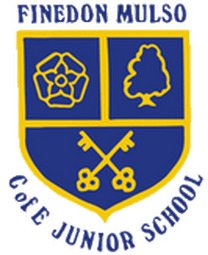Physical Education
Physical Education (PE)
Physical Education Makes Every Child Stronger and Every Life Longer
We grow in PE because:
We know that active, healthy children achieve more. PE teaches students a vast array of life skills and helps them to understand their own capabilities and how to overcome difficulties to gain success. Not only does it support the development of physical skills – with memory, focus, motor skills and mental health all being positively impacted by regular sport and activity – but the social skills and friendships promoted through teamwork can help boost children’s self-esteem and, in doing so, improve our pupils’ mental health and personal development. Opportunities to participate in sport also help to build character and embed our school values, as well as the British value of mutual respect. Therefore, it is essential that Physical Education supports the philosophy of our School, where young people feel included, valued, challenged and supported to achieve their maximum potential, in school and in life.
Our ambition and vision is to create positive relationships with physical activity for life. Our lessons should provide opportunities for all pupils to become physically confident in ways which support their health and fitness now and in the future, inspiring them to succeed and excel in physically-demanding activities. We want to define what’s possible for PE, Sport and physical activity through a positive and inclusive culture. We use Real PE as a bedrock for good practice. Real PE is a PE curriculum philosophy and approach which helps ALL children develop the physical literacy, emotional and thinking skills to achieve in PE, sport and life. It places the learner at the heart of practice with the ultimate goal of transforming how we teach PE, applying all of the high-quality learning and teaching skills that have become the norm in other subjects. It supports teachers and other practitioners to make small changes that will have a significant impact on their learners.
We grow in PE by:
- Developing competence to excel in a broad range of physical activities
- Being active for sustained periods of time
- Engaging in competitive sports and activities
- Leading healthy, actives lives
- Developing physical skills needed for sport, exercise and mobility now and in the future:
- Running, jumping, throwing and catching in isolation and in combination.
- Playing competitive games, modified where appropriate (for example, badminton, basketball, cricket, football, hockey, netball, rounders and tennis).
- Applying basic principles suitable for attacking and defending.
- Developing flexibility, strength, technique, control and balance [for example, through athletics and gymnastics].
- Performing dances using a range of movement patterns.
- Taking part in outdoor and adventurous activity challenges both individually and within a team- OAA is taught through our residential and day trips to Adventure Centres across all year groups.
- Comparing their performances with previous ones and demonstrate improvement to achieve their personal best.
- Taking part in a wide range of extracurricular clubs and competitions throughout the year.
- Swimming and taking part in water safety to ensure all pupils can swim 25m by the time they leave primary school.
We support children in growing in these areas by being consistent in the structure of PE across the whole school, in terms of lesson time and the resources used. We also monitor and evaluate the subject regularly as it is essential to evidence clear impact of learning, perceptions and positive behaviours and make the very best sustainable use of the sports premium spend.
We grow in PE when:
All teachers, coaches and support staff deliver exciting and engaging lessons with confidence, thus over time deliver outstanding outcomes for all children. Pupils are taught to apply and develop a broader range of skills, learning how to use them in different ways and to link them to make actions and sequences of movement. They are encouraged to enjoy communicating, collaborating and competing with each other. They develop an understanding of how to improve in different physical activities and sports and learn how to evaluate and recognise their own success.
The real PE curriculum is structured so that teachers are clear on what they are teaching. Children have many opportunities throughout primary school for deliberate practise in one context so they can reflect, review and refine their knowledge and skills. This repetition and practise enable children to transfer their skills from one context to another which involves participation in active stories, competition and games. Teachers and pupils are supported by the Real PE platform as its flexibility allows teachers to select activities that meet the needs of their class and can stretch and challenge as and when appropriate. The Real PE curriculum is designed so children have the opportunity to master skills by revisiting them during both an academic year and subsequent years.







